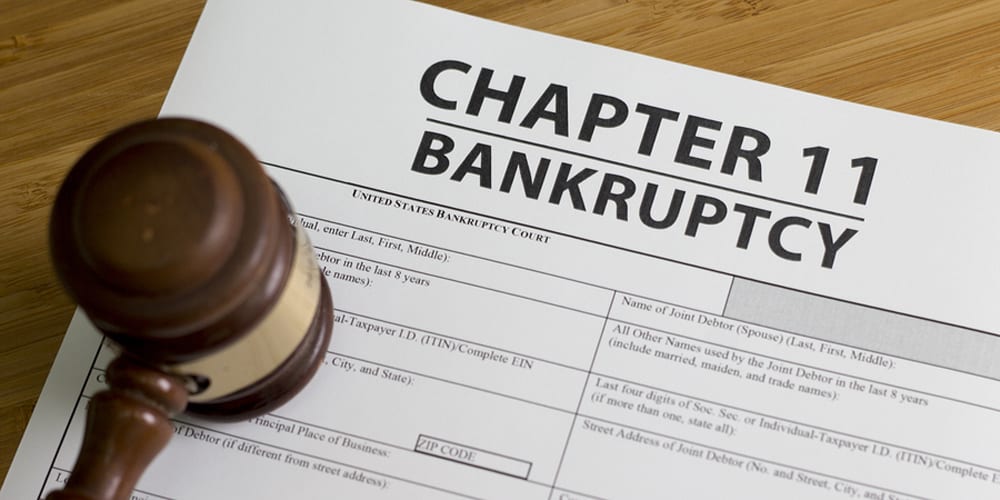 Bankruptcy can be a powerful tool for individuals facing overwhelming debt, providing a fresh start and a chance to rebuild their financial lives. Unfortunately, there are numerous myths and misconceptions surrounding bankruptcy that can prevent people from seeking the relief they need. In this easy-to-understand blog post, we will debunk common bankruptcy myths in the context of Alabama’s laws, separating fact from fiction and providing clarity for those considering bankruptcy.
Bankruptcy can be a powerful tool for individuals facing overwhelming debt, providing a fresh start and a chance to rebuild their financial lives. Unfortunately, there are numerous myths and misconceptions surrounding bankruptcy that can prevent people from seeking the relief they need. In this easy-to-understand blog post, we will debunk common bankruptcy myths in the context of Alabama’s laws, separating fact from fiction and providing clarity for those considering bankruptcy.
Understanding Bankruptcy in Alabama
Bankruptcy is a legal procedure that allows individuals or businesses struggling with debt to seek relief and regain control of their finances. The two most common types of consumer bankruptcy are Chapter 7 (liquidation) and Chapter 13 (reorganization) bankruptcies. Alabama follows federal bankruptcy law, meaning its process is similar to other states.
Now that we have a basic understanding of bankruptcy let’s dive into some of the most common myths and misconceptions.
Myth #1: Bankruptcy Permanently Ruins Your Creditworthiness
Truth: While it’s true that bankruptcy has a significant impact on your credit score, it doesn’t permanently ruin your creditworthiness. A Chapter 7 bankruptcy remains on your credit report for ten years, while a Chapter 13 bankruptcy stays for seven years. However, by adopting responsible financial habits, such as timely bill payments and maintaining low credit utilization, you can gradually rebuild your credit score over time.
Myth #2: You Will Lose All Your Personal Assets in Bankruptcy
Truth: Many people fear that filing for bankruptcy means losing everything they own, but this is not the case. In both Chapter 7 and Chapter 13 bankruptcies, certain property exemptions protect your assets from liquidation. In Alabama, these exemptions include a homestead exemption, personal property exemption, and retirement account exemption, among others. It’s essential to consult with a bankruptcy attorney to understand which exemptions apply to your specific situation.
Myth #3: All Debts are Discharged in Bankruptcy
Truth: Although bankruptcy can eliminate many types of unsecured debts, such as credit card bills and medical expenses, not all debts can be discharged. Non-dischargeable debts include student loans, most tax debts, child support, alimony, and debts incurred through fraud or malicious acts.
Myth #4: Filing for Bankruptcy is an Admission of Financial Failure
Truth: Filing for bankruptcy should not be viewed as a personal failure but rather as a tool to help you regain control over your financial situation. Many factors, such as job loss, medical emergencies, or unforeseen expenses, can lead to overwhelming debt. Bankruptcy provides a fresh start for individuals facing financial hardships and allows them to rebuild their financial future.
Myth #5: Bankruptcy is a Last Resort for Financial Troubles.
Truth: While bankruptcy is often seen as a last resort, it’s important to understand that it is a legitimate legal option designed to help individuals overcome financial difficulties. Bankruptcy provides relief from debt and offers an opportunity for a fresh start, allowing you to regain control of your financial future.
Myth #6: You Can Choose to Exclude Certain Debts from Bankruptcy.
Truth: When filing for bankruptcy, you are required to include all of your debts in your petition. You cannot pick and choose which debts to include or exclude. Bankruptcy is designed to provide a comprehensive solution to your financial troubles and ensure fair treatment for all creditors.
Myth #7: Everyone Will Know You Filed for Bankruptcy.
Truth: While bankruptcy is a matter of public record, it is not widely publicized or easily accessible to the general public. In most cases, only those directly involved or conducting a specific search for bankruptcy information will be aware of your filing. Additionally, with time and responsible financial practices, the impact of bankruptcy on your credit will lessen.
Myth #8: Bankruptcy Is a Moral Failure.
Truth: Bankruptcy is a legal process created to help individuals facing financial hardships. It is not a reflection of moral character or personal failure. Financial difficulties can arise due to various circumstances beyond one’s control, such as medical emergencies, job loss, or economic downturns. Bankruptcy exists to provide a fresh start and the opportunity to rebuild.
Don’t let myths and misconceptions prevent you from exploring bankruptcy as a viable option for regaining control of your financial life. Understanding the facts about bankruptcy in Alabama is essential. Bankruptcy is a legal tool that offers relief from debt, protects certain assets, and provides a pathway to a fresh start. For example, if you are going through a divorce then you need to speak with a divorce lawyer in Alabaster, or wherever you are from, in addition to the bankruptcy attorney in order to ensure you are taking all necessary steps in both matters. By separating fact from fiction, debunking these myths, and seeking professional guidance, you can make informed decisions regarding your financial future. Remember, bankruptcy exists to help individuals overcome financial challenges, and it can be a valuable tool on your journey to financial stability and rebuilding.

Leave a Comment